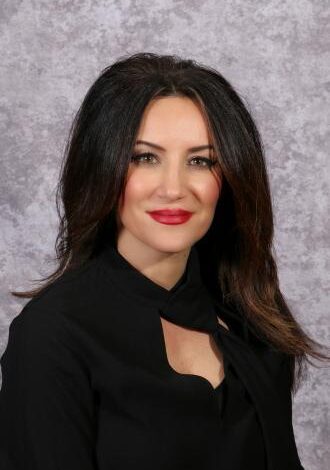DEARBORN — The Arab Community Center for Economic and Social Services (ACCESS), is one of nine organizations to receive suicide prevention grants.
The funding totals $650,000 and is coming from Blue Cross Blue Shield of Michigan, the Blue Cross Blue Shield of Michigan Foundation, Michigan Health Endowment Fund, the Children’s Foundation and the Detroit-based Ethel and James Finn Foundation.
The funding is aimed at helping establish the Suicide Prevention Support for Health Care Clinics Working with Michigan’s Health-Disparate Populations initiative.
Mona Makki, director of the Community Health and Research Center at ACCESS, said the initiative and funding fits right into what ACCESS is doing already.
“We received $75,000 of the $650,000,” she said. “This will help our initiative called ‘Stop the Stigma’ that we have implemented. We have implemented programs for screening, enhancing training on recognizing risk factors as well.”
With Arab Americans being classified as “Caucasian” in most statistics, Makki said ACCESS is careful to ensure they keep track of the statistics accurately.
“Arab Americans aren’t classified separately and that makes keeping accurate statistics difficult,” she said. “But we make sure we take that into consideration with our data.”
With suicide and depression rates sky rocketing since the start of the pandemic, Makki said the Dearborn community was hit just as bad.
“We have seen a 25 percent increase in cases where people are having suicidal thoughts,” she said. “We have also had five attempted suicides in youth and adolescents ranging from 14-17 since the start of the pandemic. With mental health concerns and the pandemic, depression, anxiety and stress are much higher.”
Makki also said that there are signs that parents can look for in their children and teens.
“We want parents and families to seek help sooner and monitor a bit more closely during these times,” she said. “See if your child is engaged, that they’re eating normally and sleeping well. While they are spending more time online, another thing to be on the lookout for is cyberbullying and making sure that your child is still engaged. It’s normal to feel stress and anxiety right now, but if it’s persistent and not changing, that could be a sign of depression.”
While there is still a stigma and a sense of shame surrounding mental health, Makki said that there has been an increase in people seeking help from ACCESS.
“We have seen a steady increase in the numbers of people seeking help,” she said. “And it’s important for people to know it’s okay to seek help. Mental illness is a treatable condition. We want people to reach out if they see signs. The numbers are alarming. But Arab Americans are not immune. This is very serious. All age groups have been affected, but teens are being most affected.”
Makki said that it’s important for parents to not place blame on themselves.
“We hope that they will have the confidence to reach out to ACCESS even if they just want to learn more,” she said. “There’s sometimes a sense of failure on parents in the Arab community, but this is no fault of the parents. Everyone is struggling right now. We offer a number of services and resources and we want to prevent children from feeling like there is no way out.”
Regardless of anyone’s financial situation, Makki said ACCESS is available.
“At ACCESS we service anyone regardless of financial situation or insurance, immigration situation, anything,” she said. “We are very confidential. If you see a family struggling or a child needs help, encourage them to seek help. We need to continue to support each other and encourage people to seek help during this time. We need to do our part to make sure we are healthy and to encourage families to get the help they need.”
Anyone seeking help can call ACCESS’ Medical Center at 313-216-2230.






Leave a Reply